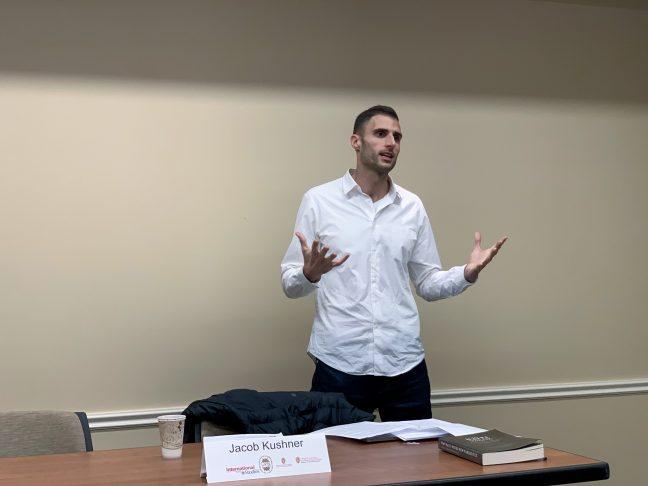An international freelance journalist and University of Wisconsin alum returned to campus to deliver a lecture Wednesday evening on his work regarding Haiti 10 years after the earthquake.
The Jan.12, 2010 earthquake had a 7.0 magnitude and is estimated to have caused 300,000 deaths, injured another 300,00 and displaced 1.3 million Haitians. Journalist Jacob Kushner investigated the issue as a freelance project for The Guardian, and said he believes it to be the single most deadly disaster in modern history, but would not call it “natural.”
“We think about earthquakes as a natural disaster, but what happened in Haiti, I would say is not really a natural disaster,” Kushner said. “I mean, it’s not natural to die when an earthquake strikes. It depends on building codes and poverty and how people have been able to live in a place with regulation … where they can build a safe house.”
At the same time, Kushner said, the U.S. “responded in an unprecedented way” to the disaster. Kushner said Americans donated more money toward relief efforts in Haiti than they ever had and the U.S. government allocated more money than it ever had before for any other disaster.
Despite this, Kushner said Haiti did not receive significant portions of the funds, which instead lined the pockets of U.S. businesses that worked on projects there, he claimed.
“A lot of it probably ended up right back in American companies and invested in the American construction companies that did a lot of work there,” Kushner said.
Kushner discussed two projects — a $300 million industrial park called Caracol the U.S. planned to build on the northern coast of Haiti and the construction of a new port, since Haiti’s only seaport had been destroyed in the earthquake.
Kushner said Bill Clinton, along with several other key figures involved in the project, estimated the industrial park would bring around 60,000 jobs. Kushner said that was not the case once the park opened.
“The industrial park opens up, and it doesn’t produce anywhere near the number of jobs that were anticipated,” Kushner said. “Now, the claim is they have 11,000 or 14,000 jobs is the most recent [number].”
The seaport project, Kushner said, has fared even worse. When USAid realized building a new seaport would be too difficult and expensive, they moved to renovate and rebuild the old port, which to this day has not happened. According to Kushner’s article for The Guardian, USAid made the decision to abandon the project in May 2018, but did not communicate this to Haitian officials.
“When I visited Cap-Haïtien in December, Haitian port authorities were unaware that USAid had scrapped the project,” Kushner said in his article. “‘Last conversation we had, they told us the money is there,’ Anaclé Gervè, the director of the Cap-Haïtien port, said. I told him what a USAid official told me: it had decided to cancel the port project six months earlier. Gervè leaned back in his chair. ‘Wow,’ he said. ‘They didn’t tell us that.’”


